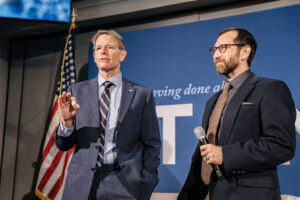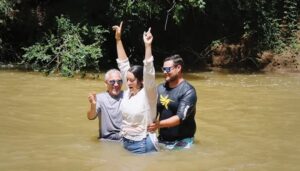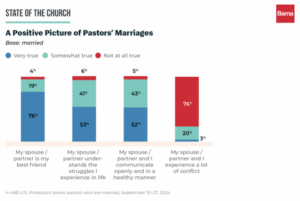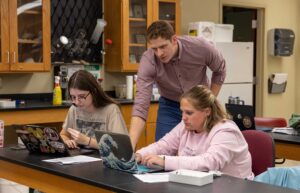
CHARLOTTE, N.C. (BP)–When King Solomon began building the temple in Jerusalem in the 10th century B.C., it took 80,000 stonecutters to lay the foundation.
Betty Easter identifies with that effort as an International Mission Board strategy coordinator among Roma Gypsies in southern Europe. Her team strives to lay a groundwork for the Gospel among the 2.5 million-plus Roma hardened by centuries of bondage in the region and decades of communism.
“What we’re doing is in effect cutting stones for the foundation,” Easter says. “We’re not seeing many come to know the Lord, but we’re getting chinks in the rock.”
For Easter, her stonecutters, or team members, include two members of her home church -– First Baptist Church in Charlotte, N.C. One serves with her as a medical instructor while the other works from American soil as a virtual strategy coordinator -– someone who coordinates mission work in places where there are no long-term IMB missionaries.
Easter’s missionary call didn’t begin as a call to the Gypsies, but to the country of Macedonia, just north of Greece. But when a believing Roma couple from Germany migrated to Macedonia, Easter’s work with their new Bible study gave her a burden for these unreached people.
During one meeting while Easter told the Bible story about Sodom and Gomorrah to the group, a young girl accepted Jesus. Before long, about 20 other Roma in that village had come to faith in Christ.
For five years, Easter alone tackled the overwhelming responsibility of reaching Roma Gypsies in the eight countries in southern Europe. Based in Macedonia, she worked directly with local Roma but struggled to sow seeds throughout the region.
Even as she prayed in 2005 for additional help on the field, IMB missionary Karen Blackburn was praying about whether the Lord would have her change locations.
After three years in Siberia, the nurse and midwife felt God calling her to use skills she wasn’t able to use in Russia. A chance meeting with Easter led to discussion about the Roma’s medical needs. In 2006, Blackburn joined the work to provide medical seminars and assist with the Roma’s medical problems.
“Medical needs are overwhelming,” Easter says. “One project is to have volunteers from the evangelical church [in Skopje, Macedonia] work with Roma for literacy and other after-school-type efforts. These provide open doors to new communities to reach beyond where we are now.”
Reaching beyond tried-and-true methods of missionary work is a trend for Easter’s team, which gained a virtual strategy coordinator for the Roma Gypsies in Bosnia in September 2006.
The Charlotte church began to see God’s vision for the Roma after a 2005 medical mission trip to help Easter. She encouraged mission team members to consider taking on the Bosnian Roma as their own mission field. The church agreed to the challenge and selected Lyda Taylor as its virtual strategy coordinator.
“When we went to visit with Betty, she was a one-person team with eight countries,” Taylor recounts. “It broke our hearts when we saw the need and that God wanted workers in the area.”
Taylor and her church are planning to send about four mission teams to Bosnia each year, in addition to working with other Christian organizations in the country. The long-term goal is for someone to feel called to spend three months or longer among the Bosnian Roma to make a more consistent impact.
For other churches interested in supporting a specific people group, Taylor encourages them to look into being a virtual strategy coordinator or to partner with another church already filling that role. Numerous opportunities abound for churches to be intimately involved in reaching a people group for Christ.
“There are [different kinds of] fields,” Easter says. “Some are sowing fields and some are reaping fields. We’re in the foundation-building field.”
–30–
Dea Davidson is a writer with the International Mission Board.













